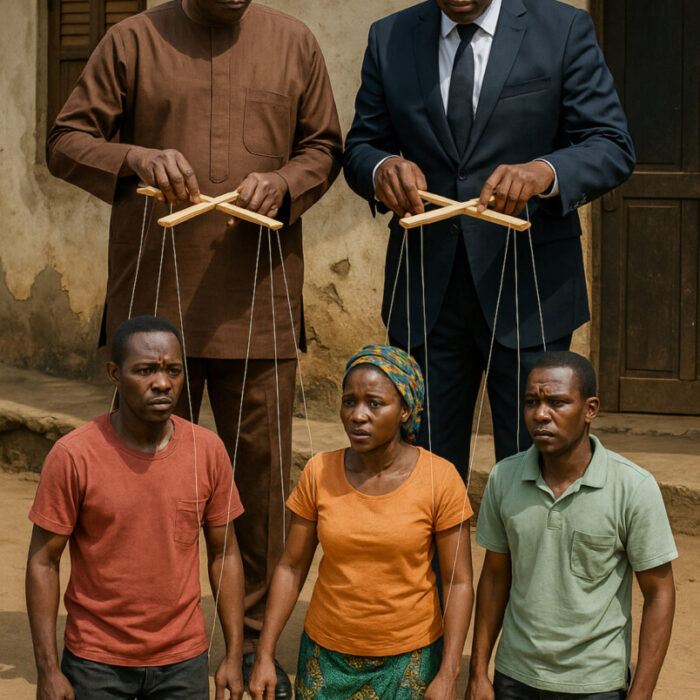Refined by Nnaoke Ufere, PhD
Ada Okeke’s essay ignited a heated debate, revealing a significant divide between Nigerians at home and those in the diaspora. Mr. Linus Okechukwu’s response stood out for its unflinching honesty and provocative insights.
While his bluntness may be unsettling, it is essential for fostering meaningful dialogue and transformation. Embracing this discomfort with empathy, humility, and an openness to understanding is essential for fostering productive dialogue and achieving meaningful progress.
Here’s Linus Okechukwu’s essay in his own words:
My name is Linus Okechukwu, a financier in Lagos. I completed my undergraduate degree in Lagos and earned a JD/MBA from a top program in New York City.
After working for years as an Investment Banker in Mergers and Acquisitions, I returned to Nigeria to contribute to its economic development in the private sector. I’ve been here for 29 years, and it was the best decision I ever made.
I write from the perspective of someone educated and experienced in the diaspora, who chose to return to Nigeria to make a difference despite the significant challenges the country faces.
This article is a response to Ada’s personal experience essay, which triggered reflections I’ve long held. I thank the African Mind Journal for encouraging me to draft this piece and for refining the content.
While AMJ refined my draft for readability, the ideas and content are entirely mine.
Here’s my reflection:
Each year, thousands of deceased Nigerians are flown back home from the diaspora in wooden boxes for burial. Meanwhile, thousands more leave the country in search of better opportunities.
Tragically, many of these dead individuals were once the best and brightest minds, seeking greener pastures abroad where the locals have cultivated and watered their own lands into flourishing pastures.
A tragic pattern persists in Nigeria: year after year, bright and dynamic individuals leave the country, only to return as corpses to be buried in their villages. Their once brilliant minds, full of potential and promise, are no longer available to contribute to the nation’s development.
Nigeria cannot be just a burial ground for its diaspora citizens. If our country is only valuable for your dead body and not as a place you value enough to return to while your brain is alive and your expertise can contribute to national development, then we reject the notion of becoming your graveyard.
Each year, our nation loses thousands of skilled professionals to countries that offer better living conditions, more opportunities, and a higher quality of life. I was one of them.
These individuals leave with the hope of finding success and stability, but their departure leaves a void that is difficult to fill. The loss of our brightest minds stunts our growth and hampers our ability to develop as a nation.
It is disheartening to see foreign countries reap the benefits of our intellectual capital and human resources, while Nigeria is left to bury their lifeless remains. What value does dead bodies bring to the nation? Frankly, nothing.
In my view, and that of many others, this cycle of leaving Nigeria as vibrant minds only to return as lifeless bodies must end. We cannot continue to be a nation that only welcomes back its brightest citizens in death.
Let me say it loud and clear: We can collectively build a Nigeria that is prosperous, vibrant, and full of opportunities. But we must address the root causes of emigration and create an environment that encourages our citizens to stay.
However, the lame argument that the government must first create a nirvana or paradise before you return to Nigeria is pure nonsense. It’s the people who create their own environment. If you wait for the government to do everything for you, then you’re mistaken.
Not even in the USA or EU does the government provide a utopian society; individuals and communities take ownership of their surroundings and work towards creating a better environment.
Similarly, in Nigeria, it’s up to us to take charge of our own development and stop relying solely on the government to fix everything. By returning and contributing our skills and expertise, we can collectively build a better Nigeria, rather than waiting for an elusive perfect scenario.
When I discuss with some of my friends in the diaspora about contributing their talents to our home country, they promptly list their many contributions: sending remittances, providing medical aid, supporting education, injecting funds into the local economy during holiday seasons, and building grand homes that create jobs for local laborers.
While these contributions are significant and commendable, they highlight a broader issue: the need for a more hands-on, sustained involvement in nation-building. It is not just about financial support but also about leveraging their skills and expertise to drive long-term development and progress in Nigeria.
This is what other immigrants from South Africa, India, China, Vietnam, Thailand, and Brazil do regularly, by actively engaging in their home countries’ development through productive initiatives in technology, education, healthcare, and entrepreneurship, thereby creating a more profound and lasting impact.
While diaspora Nigerians’ annual remittances of about $20 billion significantly contribute to the nation’s economy, they also have severe adverse effects. A large portion of these remittances is spent on the consumption of foreign goods rather than on economic development or productivity-enhancing activities.
This perpetuates a culture of dependency and complacency among recipients, who often expect remittances without making efforts to improve their circumstances. Consequently, many remain idle, waiting for handouts instead of creating their own opportunities, contributing to the high failure rate (90%) of local businesses started with remittances. However, remittances used for education and medical expenses have positive impacts.
Diaspora doctors often claim their participation in yearly medical tourism as a significant contribution. While commendable for providing temporary relief, research indicates that the lack of continuity in care often causes more harm than good.
Patients typically receive no follow-up treatment, leaving long-term conditions untreated. Additionally, few doctors ensure local professionals can take over patient care, highlighting a critical gap.
Without proper transition and ongoing support, the benefits of these short-term interventions are undermined, failing to create sustainable health improvements. Once the initial treatment is completed and the doctors leave, patients are left without follow-up, communication, or monitoring.
A Call to Action
We must create an environment that encourages our citizens to stay and contribute to Nigeria’s development by addressing root causes of emigration like lack of job opportunities, inadequate infrastructure, poor healthcare, and insecurity.
Confronting these challenges requires collective ownership and personal sacrifice. It’s a shared responsibility beyond the government’s realm, involving everyone embracing their agency to catalyze change.
I urge those in the diaspora to return to Nigeria and share your expertise. Whether you’re a retired professor, medical professional, engineer, entrepreneur, or any other skilled individual, your knowledge is vital for our nation’s development.
Your active contribution while still mentally and physically able is crucial. Come back to help equip the next generation with modern skills, provide medical assistance, or share your expertise in any field.
To encourage diaspora Nigerians to contribute to nation-building before they die, a mandatory “death tax” should be imposed on coffins arriving from abroad. This tax must be paid in foreign currency at the Nigerian embassy before the Consular Mortuary Certificate and passport/visa are issued.
This policy would remind individuals of their responsibility to contribute to the country’s development during their lifetime. If they have not contributed, they should not be brought back for burial without paying this tax, signaling a needed paradigm shift.
In conclusion, our collective problems require collective solutions, with everyone playing their part in building a better Nigeria, not just a place to be buried in. Nigeria is not a graveyard for dead brains. Let’s end the cycle of sending home only the deceased and start building a nation our citizens are proud to call home.
Thank you, Ada, for giving me and many Nigerians the opportunity and motive to speak our own truths, just as you did in your memorable essay.




